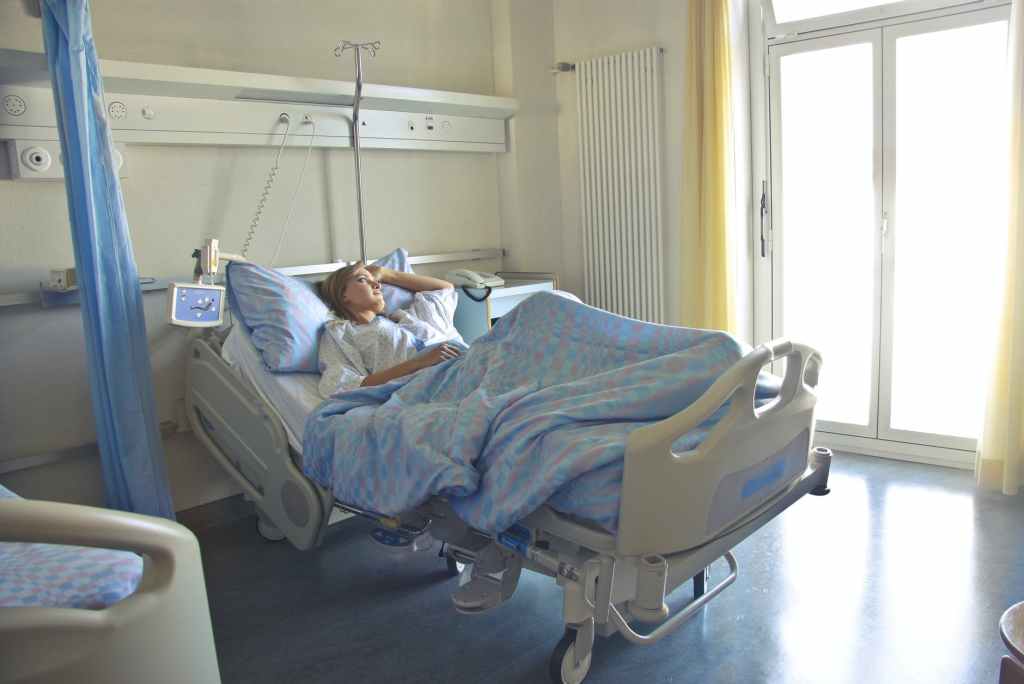
One theme that I’ve discussed in The Teal Diaries before is identity, both self-identity and how we’re perceived by others. Sometimes the health care system and the medical establishment are especially challenging to our mental health—we are made to feel anonymous and are often reduced to nothing more than numbers or charts, it hurts that we are being robbed of our individualism. I was personally made to feel an acute lack of identity when some nurses and hospital workers didn’t call me by my correct or preferred name. Their error would stem from the fact that I’ve always been called by my legal middle name, and not my first like most people.
Loss of identity is the heart-breaking reality for many cancer patients as we find ourselves navigating the hospital or other medical institutions. We feel ourselves diminished and our individual worth slipping away. As patients much of our privacy and control is essentially gone, on a hospital unit we must wake when we are told, wear what we are told and eat what we are told. Often, we don’t have the luxury of a private room, we must share a room with whomever, they say we have to.
In his classic New York Times bestseller Being Mortal: Medicine and What Matters in the End, Atul Gawande examines identity and how it’s often diminished for residents of hospitals and nursing homes. The author, a medical doctor, uses case studies and also discusses the reality of chronic illness and ageing within his own family. Gawande writes that the battle of being mortal is the battle to maintain the integrity of one’s own life—to avoid being so diminished or dispirited or subjugated that who you are becomes disconnected from who you were or what you want to be.
One of the most significant mental health issues that I’ve recognized, both in myself and other cancer patients, is what the disease does to our self-identity. It’s as if we have to fight to remain ourselves after we are diagnosed with cancer. There are days when I feel caught in the middle of something. Although it’s true that ovarian cancer has substantially influenced my lifestyle, and to some extent how I view the world, it’s not all I am—I’ve struggled to make even those closest to me understand this paradox. It’s difficult to explain that while my self-identity is not entirely unchanged, I will always remain so much more than a cancer survivor or an oncology patient.
Regrettably, over the course of my journey, I’ve learned that our society still has misperceptions about chronic illnesses, such as cancer. and that there is still indignity for those of us living with such conditions. For instance, one family friend became rather reclusive when she was informed that I was going through cancer treatment and behaved as if a cancer diagnosis might be contagious. She further assumed that all chemotherapy patients lose their hair and immediately offered to loan me an old wig she had.
But then, this legacy isn’t surprising considering the profound fear, confusion and stigma surrounding cancer for centuries. Until relatively recently the word was hardly spoken in public or said out loud. It’s no wonder that some of us living with cancer still choose to avoid revealing our illness to anyone outside of our inner circle of family and close friends. We don’t want to be viewed differently—we just want to be normal, not defined by the disease.
Lene Andersen is a health and disability advocate living in Toronto. She’s lived with rheumatoid arthritis since she was four years old and now uses her experience to help others with chronic illness. I was encouraged by some of Andersen’s advice in a recent article she wrote for HealthCentral, a website aimed at people with chronic or serious conditions. In her piece, Feeling Like a Cog in the Healthcare Machine? We Get It. Anderson shares tips about how to get doctors and other members of your health care team to see you as a person, not just a patient. She recommends the following four strategies to help strengthen your relationship with health professionals:
Empower yourself. Remember that you have ultimate power and control over your life. In particularly intimidating situations, like being tended to by a senior doctor trailing a group of medical-school residents, feeling in control will understandably require more effort. Repeating a phrase like “nothing about me without me” in your mind might help you to sit taller and find the power to speak up instead of shutting down in front of this unexpected audience.
Be honest. It can be difficult to share some of your deepest fears and private questions with a relative stranger, but being honest with your doctor will help them develop a treatment plan that works for your situation. What’s more sharing what really matters in your life pushes you, the person, to the forefront of the discussion.
Take the lead. Coming to your appointments prepared and taking the lead emphasizes that you’re not a passive recipient of care, but an active partner, this helps to take everyone involved in the consultation off of autopilot and back to seeing you as an individual. Also if your questions have been answered and your treatment supports your life goals, you’re more likely to feel good about following your doctor’s recommendations.
Be a person to your doctor, too. Remember that your relationship with your doctor is a relationship with a person, so treat them with the same compassion and respect you would anyone else. Ask your doctors how they are doing and you’ll probably be surprised by how grateful they are for the question. You may also want to share information about your own interests, making it part of the conversation about your goals or your quality of life. Every time you chat about something other than your health, it helps build a connection with your doctor.

